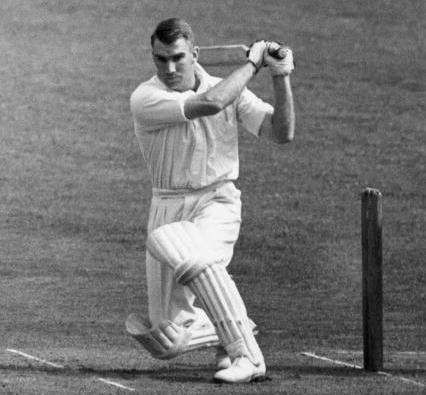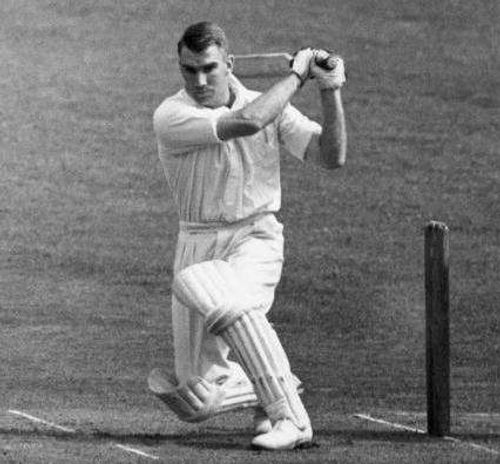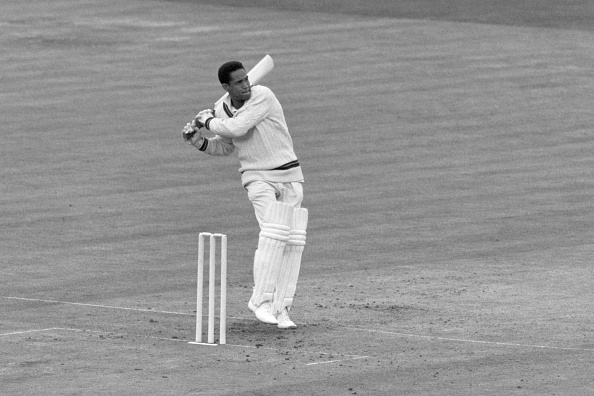
SK Flashback: Recounting New Zealand’s maiden Test win
March 13 marks a significant moment in New Zealand cricket’s history. 61 years ago, on the same day, John Reid’s team became the first-ever Black Caps side to triumph in a Test match. Bangladesh’s misery in this format well known as they took 35 matches to register a Test win. New Zealand’s form was similar as they had to wait for 26 years to taste their maiden Test victory.
New Zealand made their Test debut in 1930 against England, and in the first 44 Tests, they lost 22 and drew the rest. They finally broke the jinx during the home series against West Indies in 1956.
The Caribbean's toured New Zealand for a four-Test series and as expected, the visitors outright dominated Reid and his boys in all departments. New Zealand lost the Dunedin Test by an innings and 71 runs; they lost the Christchurch game by an innings and 64 runs; West Indies won the series by thrashing New Zealand by nine wickets at Wellington.
Even before the hosts could recover, the series was gone 0-3 to the West Indies. Clearly, there was no excitement for the dead rubber Test that was scheduled to be played in Auckland.
Nobody was surprised that the Eden Park stands were almost empty. New Zealand cricket fans had probably lost hope of ever witnessing their boys win a Test but little did they know that history was about to happen in the next match. Let’s go back to 1956 and relive the moment:
As it happened
New Zealand won the toss and Reid elected to bat first. New Zealand were coming off a poor batting performance in the previous three Tests. Barring the opener, Lawrie Miller, who missed a fifty by three runs, the rest of the top-order was dismissed early. As expected, captain Reid stepped up once again and his knock of 84 was New Zealand’s highest individual total in the series. He received some support from John Beck, who scored a mere 38 runs.
The best part of New Zealand’s performance was when the opponents came out to bat. Tony MacGibbon and Harry Cave together picked a total of eight wickets as they bowled West Indies out for 145. This was the first time in the series that the home side took a lead as New Zealand were 110 runs ahead when they walked out to bat for the second time.
They batted for 80 overs, to take a lead of 268 and declared surprisingly. New Zealand’s West Indies-born wicketkeeper, Sammy Guillen, who had earlier played international cricket for West Indies, top-scored with 41 runs. With more than half of the day left in the game, a superb effort from the New Zealand bowling attack saw them finally winning a Test. Cave, Don Beard and Jack Alabaster were among the wicket-takers for the Kiwis.
Lucky Captain Reid
After Cave suffered an injury in the first Test against West Indies in Dunedin, John Reid was handed New Zealand’s Test captaincy for the remainder of the series. New Zealand’s maiden Test came under Reid’s captaincy.
However, the Auckland win was special for Reid for numerous reasons. Along with captaincy, he contributed with the bat too. He top-scored with 84 runs in the first innings, which is one of the reasons why New Zealand managed to go beyond 250 for the first time in the series.
West Indies’ lowest total
The West Indies side boasted the young Gary Sobers and Everton Weekes, who were at their best, breaking and making batting records. Weekes had already notched up two centuries in the series and was in lethal form. Sobers on his day, had the ability to take away the game in no time. However, the Windies were about to get outplayed by an unfancied New Zealand side.
Even the rain gods could not save the West Indians from the embarrassment of being bundled out for their lowest test score up to that time.
Cave’s 4 for 21, Alabaster’s 2 for 4 and Beard’s 3 for 22 dismissed the entire West Indies side for just 77 runs, handing New Zealand their first Test victory. The Black Caps won by 190 runs.
Harry Cave’s career-best figures
Cave, who is one of the major reasons behind New Zealand’s victory for his consistent bowling performance in the Test, picked up a total of eight wickets in the Test; four wickets each in an innings. He removed both the openers in the first innings before clearing the stumps of the lower order batsmen. The West Indies batting derailed when Cave dismissed their set batsman, Hammond Furlonge for 64 runs.
Cave’s figures of 4 for 21 in the second innings remained his career-best after he ended his nine-year-old Test career, having played 19 Tests. The home series against West Indies was Cave’s penultimate Test series for New Zealand. His last Test came in the next series when the BlackCaps toured England for a five-Test series.
Fans flood Eden Park
As New Zealand had already lost the series after their thumping defeats in the three Tests, the fourth and final Test in Auckland was of less importance for the home crowd. That resulted in empty stands in the first three days of the last Test.
However, when the news of the famous West Indian collapse began to spread, Aucklanders flooded into Eden Park to witness their boys finally etch history.
According to reports, approximately 10,000 spectators were a part of the historical moment in New Zealand cricket. When the last wicket fell, the Black Caps players ran away with the stumps in jubilation, while around 7000 ‘tolerant’ supporters stormed into the ground. The moment turned more beautiful when Alf Valentine, the last West Indian man to be dismissed, even appeared to enjoy being part of history even though he was on the losing side.

